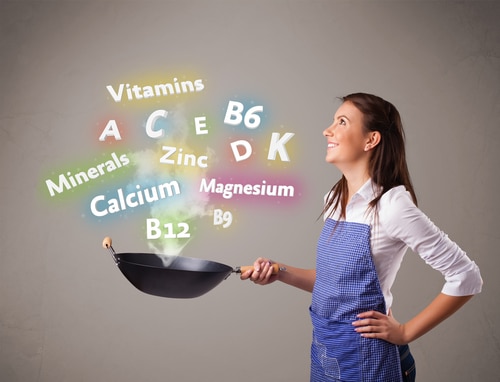
One mineral you need in small amounts is zinc. So small is the requirement for zinc that it’s called a trace mineral. But don’t confuse small quantity with lack of importance. Zinc participates in over 200 reactions in the body, and it may be especially important if you exercise. Research suggests that athletes and people who work out may need higher zinc levels in their diet.
Why is Zinc Important?
Zinc is important for cell growth, wound healing, fertility, the ability to taste and smell foods and for a healthy immune function. Deficiencies in zinc can reduce the body’s basal metabolic rate. If you’re trying to lose weight, a zinc deficiency could work against you by slowing down your metabolism. Obviously, you want enough of this mineral in your diet even if you only need it in trace amounts.
Why Your Zinc Levels Are Important if You Work Out
Research shows that people who do high-intensity exercise or prolonged endurance exercise may have lower zinc levels. If zinc levels drop too low it can affect exercise performance by altering muscle contraction. This is because zinc is involved in energy production and metabolism in muscles. You also lose zinc through sweating and through urine when you work out at a high intensity or for a long period of time.
For the average athlete who eats a relatively high-protein diet, changes in zinc levels with exercise will have little effect on exercise performance. This is because they replace it regularly through their diet. Zinc is found in highest quantities in red meat, organ meats, seafood, and chicken. People who work out strenuously and eat a vegetarian diet are more likely to have zinc levels that are low enough to affect their exercise performance.
Zinc is important for immune health too. Most research shows that exercise boosts immunity, but high intensity or prolonged moderate-intensity exercise can suppress it, especially if a person over-trains. Small loses of zinc through sweat and urine during exercise combined with prolonged or intense exercise could increase the risk of colds and infections.
Should You Supplement with Zinc if You Work Out?
If you do high-intensity exercise, make sure you’re getting enough zinc in your diet. Virtually all meat is an excellent source of zinc, but vegetarians have fewer zinc-rich foods to choose from. Respectable vegetarian sources of zinc include wheat germ, pecans, beans, sunflower seeds, cashews, and oatmeal. Milk and cheese also have decent amounts of zinc.
Unless you’ve had your zinc level checked and it’s low, it’s not a good idea to take zinc supplements. When you get too much zinc, it blocks absorption of other trace minerals including iron, calcium, copper, and magnesium. Taking a supplement could throw off your mineral balance and create a deficiency in another mineral. Most non-vegetarian athletes shouldn’t have a problem getting enough zinc in their diet. If you eat a mostly plant-based diet, increase the number of nuts, beans, whole grains and seeds you eat to ward off a zinc deficiency.
References:
The Nutritionist. Robert Wildman, Ph.D., RD. 2002.
Int. J. Sport Nutr. 1993 Sep; 3(3): 261-71.
Albion Research Notes. “A Compilation of Vital Research Updates on Human Nutrition”
Nutrition: Concepts and Controversies. Sizer and Whitney. 2008.
Related Articles By Cathe:
5 Reasons You Need More Zinc in Your Diet if You Exercise
Zinc: the Mineral You Need More of This Winter?
Why Athletes and Older People Need More Dietary Zinc

